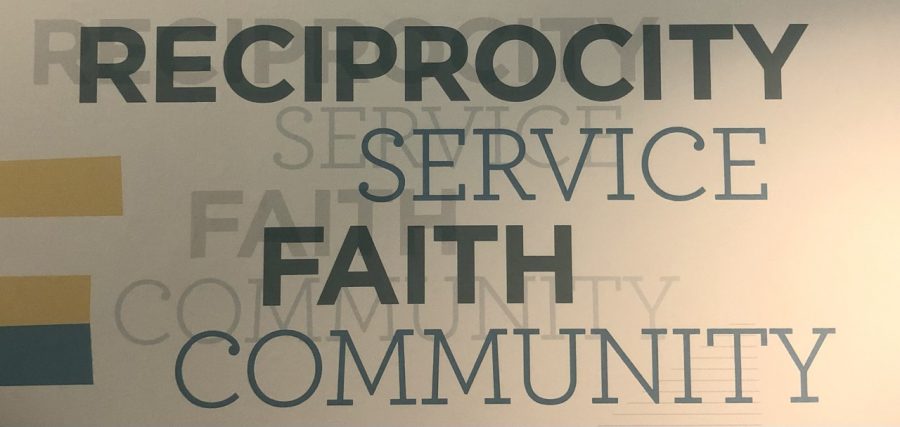Photo courtesy of Mark Moz on Flickr
This past week, Business Editor Drew Bassini met up with Tyler Peterson (Class of 2018), founder of the Loyola Real Estate Club. The club’s mission statement is as follows:
“Our mission is to educate and enlighten a group of entrepreneurial students about the real estate market while providing them with an unparalleled network of current Loyola students and alumni in the field.”
Before we venture too far into the depths of real estate, as it is understood by Tyler, it is important to know background information, both past and present, about the market. Here is what you need to know:
- “Those who consistently make money in real estate know the market. They know the location and the history. They know what new developments are planned. They know the transportation and the schools. They know everything about the area where they invest. They have to know it all.”
- For more about this, follow this link: http://www.investopedia.com/articles/pf/07/five-real-estate-tricks.asp
- The four phases of the real estate market cycle are: Recovery, Expansion, Hypersupply, and Recession. To learn the specifics of the market cycle, which is essential to understand the warning signs of an impending crash or bubble, follow this link: http://www.investopedia.com/articles/pf/07/five-real-estate-tricks.asp
- As banks issued more and more subprime mortgages, the 2008 Real estate Bubble was inevitable. Read more about this here: http://www.investopedia.com/articles/pf/07/five-real-estate-tricks.asp
Tyler’s drive and enthusiasm was immediately contagious as she talked about her club on campus. Here are her insights on this emerging group on campus.
The Greyhound: Tyler, what led you to create the Real Estate Club at Loyola?
Tyler: Last year while exploring the Baltimore Student Exchange Program, which allows students to take college courses at any Baltimore school, I noticed that Johns Hopkins Carey Business School offered a degree in real estate. We at Loyola currently do not offer a degree or program in real estate. This sparked my idea for founding the club. I believe in students having a well-versed education especially when it pertains to something as prominent as real estate. I wanted to offer students the opportunity to strengthen their knowledge while getting to explore the real estate market surrounding them without a formal class setting.
The Greyhound: Could you explain exactly what a collateralized debt obligation is, as it pertains to real estate?
Tyler: Collateralized debt obligation is a security that bundles a set of similar loans, like mortgages, into one investment as a package to be sold or bought. The fixed income assets are broken up into multiple tranches that each represent different levels of risk involved. Investors make their money off the interest gained on the loans. These CDOS became infamous during the housing bubble burst in 2007. Initially, it was an appealing investment with higher rates of return due to high mortgage rates, but the lower credit standards forced an immense default causing the onset of the recession. People were not to afford the loans they were given and therefore the CDOS were not able to collect interest and the banks started to fail.
The Greyhound: Many people are concerned with the stock market in China based on its volatility. Though, many reputable critics are saying the real problem is the housing market. What indicators should people look for in both the news and in Chinese society to determine whether or not there is a bubble about to burst?
Tyler: Many economists predicted the housing bubble burst in the United States a few years ago. To predict an economic event like this, one must look for a few signs. The economy tends to run in a cycle, even more specifically the real estate market has its own cycle. There are four different phases. Phase one, recovery, consists of when there is a declining vacancy in homes and no new construction. The next stage is expansion, during expansion there is still a decline in vacancies, however now there is new construction. The third phase is hyper supply. New construction continues in this stage, but now there is an increase in vacancies. Finally, in the last phase, recession, there is growing vacancy and more completions. The first noticeable indication of a bubble burst is in between phase two and three. This will be accompanied by a rise in interests rates which is exactly what happened to the United States in 2007. Currently, the Chinese society has passed through phases one and two. If these stages prove to be correct, then China is about to cross over into the downslope of the real estate trend and fall into a hyper supply and eventually a recession. Whether China will continue to follow the housing market trend has yet to be determined, however with the path they are headed on a bubble burst is likely to happen.
The Greyhound: What are the appropriate skills a student or professional transitioning into real estate needs learn to be successful?
Tyler: For one, to be successful in real estate they should be diligent, results-driven, have a mastery of marketing, and most importantly they should acquire local knowledge of the housing market that they are interested working in.
The Greyhound: Who are the icons for people to research in the real estate field? What are the websites, books or apps that people should look to when researching?
Tyler: There are many extraordinary real estate moguls that one can research and learn from. One fascinating group of real estate agents is Forbes 30 under 30 list. This list contains a set of inspiring young realtors that entrepreneurial college-aged students can look up to. All the realtors have captivating stories of how they achieved success so quickly at a young age. A great read that entails the story of the road to success is Million Dollar Agent: Brokering the Dream, written by Josh Flagg. Josh, who is on the 30 under 30 list, is also on Bravo’s Million Dollar Listing, which is a TV show for entertainment, but is also a fun way to pick up a few facts about the current housing market. Lastly, one thing I strongly encourage is for students to download the app Trulia or to go on trulia.com to browse the listings in Baltimore and get to know the area they live in and its real estate market.
The Greyhound: Why should anyone be interested in Real Estate?
Tyler: Real estate is apart of everyone’s lives. It is bought, rented, sought out, and passed down through families. If it has not already, it will become a part of your life too. Whether one is interested in being a real estate agent or just intrigued by it, students should learn about the real estate market in order to better educate themselves about their future purchases and investments.
The Greyhound: When does the club meet? How does someone sign up?
Tyler: The Real Estate club meets biweekly typically on Wednesdays at 6 p.m.. To sign up all one has to do is simply email tbpeterson@loyola.edu for more information.












































































































